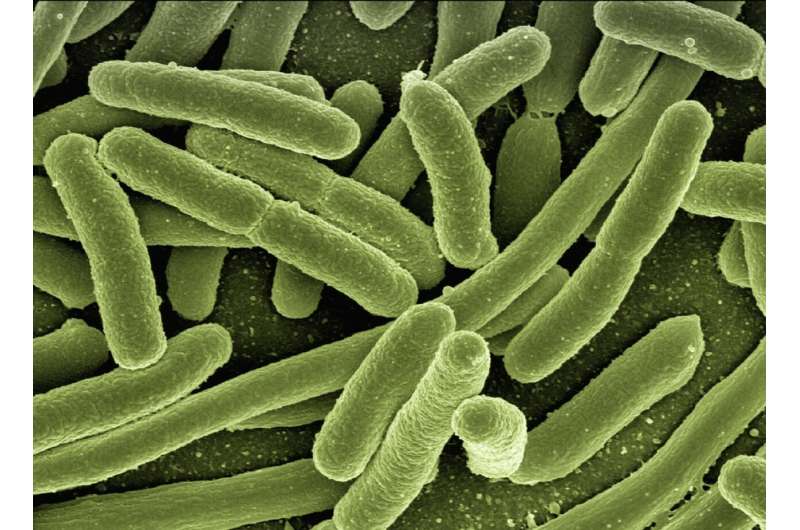This article has been reviewed according to Science X's editorial process and policies. Editors have highlighted the following attributes while ensuring the content's credibility:
fact-checked
trusted source
proofread
Antibiotic-resistant bacteria contaminates whole ICU, shows study

Carbapenem-resistant Acinetobacter baumannii (CRAB) was brought into the ICU, in Hangzhou, on multiple occasions as patients were admitted, creating a large 'reservoir' of the bacteria which contaminated beds and equipment.
Of 35 CRAB-positive patients in the study, 14 acquired CRAB during their ICU stay. Samples of the drug-resistant bacteria were found more frequently in bed unit environments (54·6%) than patients (24·1%), with ventilators (27·9%) and dispensing trolleys (25·6%) most likely to yield samples of CRAB.
Publishing their findings today in The Lancet Regional Health—Western Pacific, the international group of researchers led by the University of Birmingham calls for urgent measures to help prevent hospitals becoming infected with the bacteria.
Study co-author Professor Alan McNally, from the University of Birmingham, commented, "CRAB poses a serious risk to hospitalized patients and can cause severe disease including pneumonia, urinary tract infection, bacteraemia, meningitis, and soft tissue infections—all of which can be very difficult to treat due to the bacteria's multidrug-resistance."
"The quantity of CRAB found in this ICU highlights the urgent need for targeted infection prevention and control measures in healthcare facilities where such large accumulations of the bacteria are likely, so that we can stem the global spread of this pathogen."
The study highlights the environment's important role in CRAB persistence and eventual acquisition by patients. Researchers call for build-up of the bacteria to be tackled with infection prevention and control measures, including:
- Thorough and regular deep-cleaning of surfaces touched by patients and staff;
- Isolation of patients known to carry CRAB;
- Minimization of patient relocation between beds; and
- Enhanced staff hand-washing protocols.
Researchers sampled the entire ICU, including staff, patients, and the environment, to reveal a remarkable diversity of CRAB in this setting—introduced to the unit as patients were admitted and driving the bacteria's spread within the ICU.
CRAB can persist for prolonged periods on hospital surfaces and medical equipment, and colonize patients within 48 hours of admission—facilitated by hospital staff, shared equipment, airflow and plumbing. Outbreaks of CRAB can require interventions or changes to infrastructure that impose clinical, logistical, and financial burdens.
Antibiotic-resistant infections are a major threat to global public health. CRAB infections are found worldwide with severely limited treatment options prompting the World Health Organization to designate CRAB a priority organism for which novel therapeutics are urgently required.
Professor McNally added, "In the absence of new therapeutic agents, effective CRAB IPC strategies are vital, if we are to limit the morbidity and mortality caused by the bacteria in hospitals. We must develop a thorough understanding of the persistence, transmission, and evolution of CRAB populations in such environments."
More information: Alan McNally et al, Endemicity and diversification of carbapenem-resistant Acinetobacter baumannii in an Intensive Care Unit, The Lancet Regional Health—Western Pacific (2023).



















